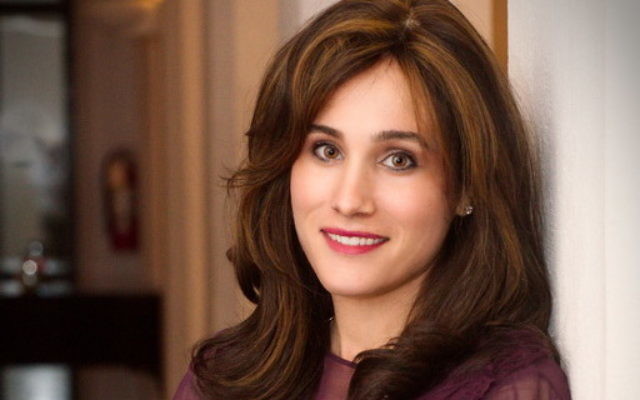Changing the World by Starting at Home
Guest Column by Dena Schusterman
On the first night of Passover we will sit with our family and friends as we participate in and hopefully enjoy the long-awaited seder. It is a wonder that although we are so far removed from the events we are remembering through our festive meal, we continue these traditions year after year as a people, as a community.
A full 70 percent of Jewish people will sit down to a seder meal, and that is amazing. Even though customs run the gamut, from pouring water on the ground to simulate the crossing of the Reed Sea to re-enacting the Exodus with matzah on our shoulders, at the crux of it we are all celebrating the same event for the same reason: G-d commanded us so (“Remember this day in which you left Egypt,” Exodus 13:3) some 3,327 years ago.
Yet somehow as we enjoy our freedoms in 2016, the world around us seems to be in as much chaos as when Pharaoh was a world leader and was abusing the Jewish people. Has anything changed?
The news is full of sad and depressing stories — some far away in Ukraine, Israel or Syria and some closer to home involving political candidates making obscene statements or the real threat of Islamic State and suicide bombings. The world we live in is daunting, big and hard to imagine or understand or explain away.
Many are criticized for living under a big rock called “my life” and not dealing with (or standing paralyzed from) all the traumas that are happening locally and internally.
I have recently been accused of this sort of denial, criticized by my family in our group chat, for living in my own fantasy world and for not knowing the details of the latest sordid tale out of cable news. Perhaps it’s escapism of sorts, even self-serving, to be so completely shut off to the world, sometimes capable of only live-streaming into the brain the goings-on in my immediate surroundings.
But as I look around and hear the conversations about Pesach, the local preparations among friends, the intown families, my colleagues at work and in the community, everyone getting ready, preparing excitedly, sharing recipes, snatching the last Manischewitz off the shelf of Costco, and giving shout-outs to local Passover sale items on Facebook, I realize that it really is all about yourself and your sphere of influence.
This is a good thing. We realistically cannot set out to make changes globally. We are most likely unable to change the front-runner candidates in this election, stop Islamic State in its tracks, write code to crack open an Apple iPhone, bring peace to the Middle East or vote on whether Iran should get a deal.
Similarly, the Jewish people were not asked to petition Pharaoh, create advisory boards, “come to the table” with their slave masters or even engage in peaceful protest. Moses alone was sent for those tasks.
The Jewish people were called upon to personally prepare their families for the Exodus. They were told to tie a sheep to their beds, partake of the sacrificial lamb and be ready to leave Egypt, no matter how scared, anxious or terrified they were, at the go. What was required from them was a personal awakening, to be prepared to leave the only place and lifestyle they ever knew. I think this was hard enough. And I think this still is hard enough.
Today we celebrate Passover in our homes with the steps of the seder, the charoset, the matzah balls, the wine, the newfangled plague bags and maror as a commemoration of this journey from so long ago. Thereby we are taking ancient history and old customs and thinking up creative ways to make that history more exciting and relevant.
Besides the narrative of how it all happened, for which we have the very holiday, the underlying message of Passover should be treated the same, with a connection and application to our very life in 2016. We are not simply celebrating some ancient past of a people shackled and whipped or of mortar, bricks and pyramids. We are celebrating ourselves, our personal slavery, our personal obstructions, and, as the saying goes, “The deeper I go into myself, the more I realize I am my own worst enemy.”
What the message of Passover is about is leaving that servitude, constraint and tie-down of life behind. All of the things that hold us back — the preconceived notions about life, the anxieties we allow to blossom, the prejudices we germinate, and the negative stories we have built up as facts of our life — let them go, as in “Let my people go.”
And ultimately it is not so easy to live under a rock (I know this firsthand); it is dark and hot and full of creepy crawlies.
In this Passover season we have the difficult task of getting out from under our own burden, adjusting ourselves and helping those around us grow. Through this self-effort we effect change. It is hard work, but we are up for the task.
So join yourself, be the master of your destiny, leave your personal slavery, and watch the positive outcomes and impact you leave on your children, family, community. This might be “all” that is expected of us, but ultimately we become a global force for true world transformation.
Dena Schusterman is a mother of eight, including 4-year-old twins, and a Chabad rebbetzin at Chabad Intown in Atlanta. She is the director of the Intown Jewish Preschool, wife to her husband, and spends time writing and interacting with, teaching and mentoring the people in her community.





comments